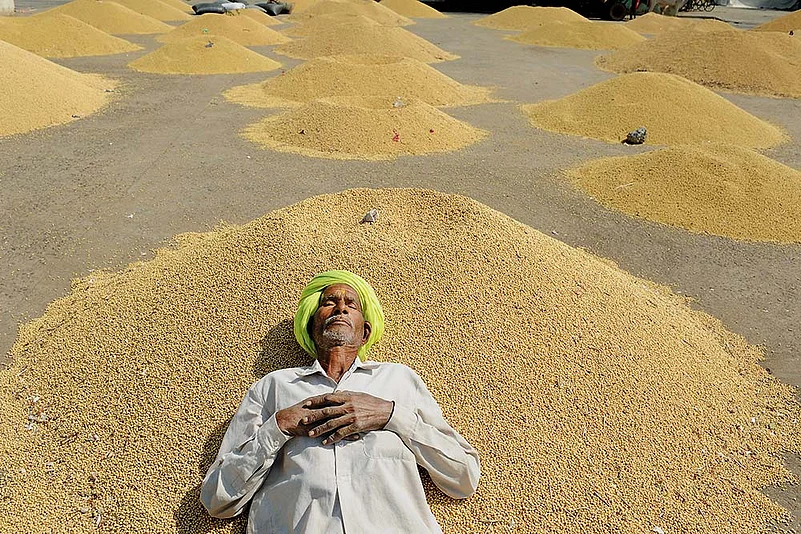Agricultural market reforms have been on the agenda of both the UPA and the NDA governments, and were attempted in bits and pieces at the state level since 2003. Until now, it was being attempted more through cajoling and persuasion of the states as it is a state subject. Concluding that the states could not be pushed beyond a point, the Narendra Modi government took the ordinance route. The stated purpose is to create ‘One Nation, One Market’ and provide choice to farmers for selling their produce for better price discovery, besides attracting private investment in the agriculture markets. The government has released a full-page advertisement to counter what it calls the lies of the Opposition.
The Farmers’ Produce Trade and Commerce (Promotion and Facilitation) Act, 2020, creates a new ‘trade area’ outside the APMC market yards where any buyer with a PAN can buy directly from farmers and the state government can’t impose any taxes on such a transaction. There is a misperceived linkage being established between the new trade or APMC Bypass Act, 2002, and the MSP system in that the MSP would not remain once this law comes into force. The fear being expressed by farmers and their unions about MSP arises from the fact that the playing field between trade area and APMC market yards is unequal as there would not be any taxes in the trade area whereas there are significant buying costs in APMC purchase. This may lead to buyers from APMCs, including the government, shifting to buying from the new trade area to lower their buying costs and thus effectively kill the APMC mandis. But it may still not mean that private buyers in new trade area would pass on even a part of the lower buying cost to the selling farmers.
ALSO READ: So Shall They Reap
However, the MSP system and its practice is a policy issue, not a legal one, unlike the Trade Act, 2020. As prices of most farm produce in India are market-determined and the government procures only a small part under MSP, the demand of farmers’ unions that MSP should be made mandatory for all buyers would be detrimental to the entire private trade in agriculture produce. The MSP is a promise made by the Union government and should not be imposed on other buyers who go by demand-supply dynamics.
The claim that the new act would bring in new investment is misplaced if one goes by the experience of states like Kerala, which never had an APMC Act, or Bihar, which repealed the APMC Act in 2006, or Maharashtra, which delisted fruits and vegetables from APMC in 2018. New investments would need incentives, and not just ease of doing business.
The Farmers (Empowerment and Protection) Agreement on Price Assurance and Farm Services Act, 2020, is just a badly designed contract farming act. The term ‘farming agreement’ is unusual as it is being confused with other arrangements like sharecropping or leasing agreements. It is also being confused with corporate farming (corporates doing their own farming on leased or owned land), which it is not. The act clearly says the contracting agency can’t lay any claims on farmer’s land or even lease it. It leaves out basics of a contract agreement like quality and acreage or quantity, which should be part of the mandatory clauses, and many aspects of modern contract farming practice like contract cancellation clauses, or delayed deliveries or purchase. The claim in the government advertisement that farmers can withdraw from a contract arrangement anytime without incurring any penalty is not true and can’t be part of the arrangement if contract farming has to succeed.
ALSO READ: Precarious Freedom
The Essential Commodities Act (Amendment) Bill provides for relaxation for major cereal, edible oil, pulses, onion and potato crops, though that would not be absolute or sustainable freedom from ECA as seen in the recent ban on onion exports in complete disregard of the provisions of the new act. The “de-fanging” of ECA would be a windfall for trading companies that speculate on prices, but not necessarily for farmers. Only some Farmer Producer Organisations may be able to use it for storing their produce for better prices and processing/value addition, if they have warehouses and are into processing, storage, packing, transport and distribution.
ALSO READ: Food Bowl Goes Against The Grain
Finally, the proof of any law is in its implementation, but these acts leave much to be desired in their design itself as far as protecting farmers is concerned.
(The writer is professor, IIM-Ahmedabad. Views are personal.)






















